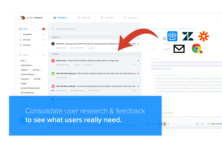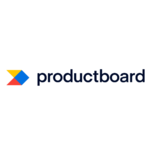Agile product management software is designed to help product managers efficiently manage their product’s lifecycle in an agile environment, from concept development and workflow planning to delivery.
Product management, in general, is a process that encompasses the planning stage, the production, marketing and management of a product over its entire lifecycle, i.e. the beginnings of the product, the development, maturity and the fall off or decline. The whole process effectively combines technology investments, customer feedback and business strategy. This covers different types of products, which can be tangible, such as physical goods, or intangible like software applications and professional services. The term “agile” refers to an iterative product development approach where product teams work in brief, incremental sprints, often regrouping to evaluate key tasks and make adjustments.
An agile product management tool is a type of management solution that supports the utilization of constant user/customer feedback, which is typically associated with the agile development method. The software provides relevant management features that will enable an agile team to quickly switch their priority and focus when necessary, which is of great contrast to the more conventional, sequence-based or waterfall product management strategy. Agile product management software also provides the tools needed to improve teamwork, communication and collaboration among team members, collaborators, clients and other stakeholders.

 Productboard is a full-featured agile product management tool that helps keep your team aligned and on track with flexible roadmaps that update alongside your plans.
Productboard is a full-featured agile product management tool that helps keep your team aligned and on track with flexible roadmaps that update alongside your plans.
Agile product management software is equipped with features and tools that are designed to facilitate the concept of setting product vision and strategy and creating a product roadmap in an agile environment. The agile product management method is all about promoting an adaptive approach to product planning and execution, giving product managers and teams the power to quickly and efficiently respond to customer feedback in order deliver a finished product that aligns as much as possible with what their customers want or need.
Agile product management tools are a response to the ever-increasing popularity of agile software development methodologies like scrum or Kanban boards. Such methods place great emphasis on the evolutionary development approach, early or on-time delivery and continuous product improvement. At its core, this is what agile product management software brings to the table. However, instead of solely focusing on agile software development, it facilitates the development of different types of products, both the tangible and the intangible.
Agile product management solutions consist of a wide variety of tools and applications that are tailored to help product managers and their teams handle their day-to-day tasks. This includes actions such as gathering user stories in an effort to understand their wants and needs as well as prioritizing the capabilities of their product in relation to the agile product management and development process. These tools guide product managers through every step of the process and they help improve efficiency and productivity for agile teams.
Agile product management software is very similar to traditional product management solutions in the sense that they are equipped with almost the same features and capabilities, such task management, product roadmapping, feature prioritization, user journey mapping and product release/delivery management. The key difference is instead of conventional product roadmaps, agile product management tools utilize agile roadmaps, which is a flexible action plan for accomplishing the product vision within an agile environment. It communicates upcoming product releases and provides a clear presentation of how each epic and feature adds to the overall product strategy.
One of the key components of a robust agile product management platform is collaboration. Like traditional product management software, it comes equipped with a number of collaboration tools to ensure better communication and transparency into the product strategy and vision. This feature allows agile team members to communicate, collaborate and coordinate among themselves in real time within a centralize workspace. It allows them to share concepts and ideas as well as work together to complete specific tasks and accomplish key objectives.
Agile product roadmapping is the feature that helps product managers and agile teams prioritize initiatives and actions according to customer feedback and analysis. This is a crucial feature in agile product management software as it allows users to create and follow a flexible product roadmap. With product roadmapping, users can easily breakdown the core product requirements into different features and then place them on the roadmap based on relevance or priority. The roadmap options may vary, depending on the agile product management tool. Apart from product roadmaps, they may include release roadmaps, portfolio roadmaps and team roadmaps.
Idea management is also a common feature in many different agile product management platforms. It allows product managers to create and manage forums where individuals can submit and discuss their product concepts and develop a strong business case. Agile teams can use the idea management function to figure out which ideas to develop and work on next by simply comparing product impact and development effort. This will not only help nurture new and innovative product ideas, but it should also help reduce the product backlog.
Many agile product management solutions incorporate the scrum framework to enhance and strengthen teamwork and collaboration within agile teams. Scrum is a specific agile methodology that is often integrated into agile product management software to facilitate the development process of various products in an agile environment. It is also often integrated into project management tools that are specifically tailored for agile project development.
Agile product management tools often provide robust and flexible solutions for capturing user stories as well. This is a vital component as the agile methodology relies heavily on agile teams having a good understanding of the customer journey. Customer requirements, i.e. knowing what they want or need plays a significant role in the outcome of the product development process. Delving into customer feedback and user stories is how product teams get the information they need and agile product management software is the tool that will help them capture and analyze that information. Only then will they be able to create an action plan; an agile roadmap to guide them towards a common goal.
The agile methodology has completely redefined how product managers approach the conception, planning and development of products. With agile product management software, product managers now have a robust solution for managing agile teams, streamlining workflows and improving collaboration among team members, customers and stakeholders. This type of software provides a more flexible strategy for product planning and development compared to traditional approaches, especially in an agile environment.
By using the right agile product management solution, agile teams can get together and share ideas to find the best outcome. Product managers can build an agile roadmap to help the rest of the team focus and prioritize tasks based on customer feedback. The product development process is done in short increments, thus giving product managers the ability to easily modify or change the product plan as needed.
Through user stories, product managers and agile teams can learn from their target customers throughout the entire product lifecycle and determine which features and components most of their end users might prefer. Customer feedback and user stories will help guide the development process to make sure the finished product meets customer requirements. Since agile product management software adheres to the values and principles of the agile methodology, making continuous adjustments to the near-term roadmap and shifting priorities to meet customer needs should be quick and simple.
One of the core features of agile product management tools that provides the biggest advantage to product managers and agile teams is the agile roadmapping solution. Agile roadmapping allows for better and more effective alignment of tasks, processes and key objectives. This is beneficial for product development teams working in a fast-paced, agile environment where independent team members and collaborators race to deliver value and quality to the tasks they’re working on and the entire product lifecycle. A good agile roadmap offers broader guiding principles and goals that are known to everyone involved, ensuring a smooth and problem-free product development process.
Good agile product management software serves as a unified platform for product managers to organize their strategies, tasks and other important processes. The product development process, regardless of the size or scope, can quickly get messy and overwhelming for everyone involved. Agile product management tools help reduce the clutter, making sure everyone knows what to do, what their tasks are, which aspects they should prioritize or focus on, etc. When used effectively, the software can deliver a cleaner and more organized product development experience.
Transparency is vital to any product development process, most especially in an agile setting. Agile product management solutions provide transparency by making sure every step of the development process and throughout the entire product lifecycle can be easily tracked. All team members, collaborators and stakeholders will always be aware of task assignments, dependencies, status and progress. It helps in keeping everyone in sync when it comes to both the short- and long-term goals.
Agile product management software helps businesses and product development teams that want to utilize an agile strategy with the planning and development of their products. This type of product management solution is designed to adhere to the core values and principles of the agile methodology where products are created in short increments, providing product managers the ability to adjust or modify their product plan at any stage of the development process.